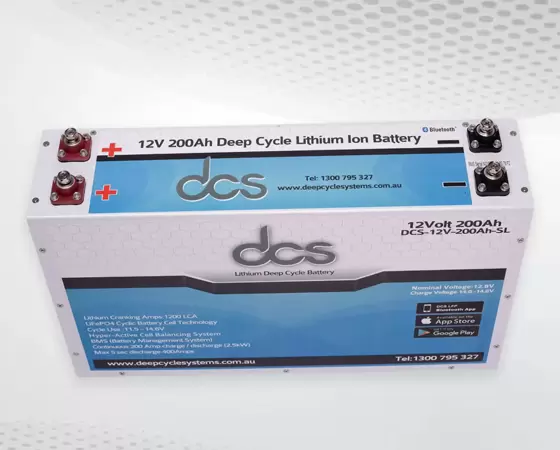The Lithium Wholesale market has become increasingly prominent due to the escalating demand for lithium-ion batteries. With the global push towards renewable energy and sustainable technologies, lithium is now integral to various sectors, especially electric vehicles (EVs) and consumer electronics.
This market’s complexity is driven by evolving trends, opportunities, and challenges, requiring a thorough understanding of its dynamics. Technological advancements and the global shift towards cleaner energy sources underscore lithium’s importance in modern industries.
Current Trends in the Lithium Wholesale Market
One significant trend in the lithium wholesale market is the surging demand for lithium-ion batteries, mainly driven by the automotive and technology sectors’ investment in lithium-based technologies. Innovations in battery technology are enhancing efficiency and energy density, further bolstering the demand for lithium.
Additionally, the market is witnessing increasing interest in renewable energy projects, such as solar and wind energy, which require efficient energy storage solutions. This growing demand is complemented by advancements in mining and extraction techniques, improving the supply chain’s overall efficiency. As a result, the lithium wholesale market continues to evolve rapidly, influenced by technological progress and the global transition towards sustainable energy sources.
Leading Players in the lithium wholesale market
The lithium wholesale market features prominent players such as Albemarle Corporation, SQM, and Tianqi Lithium. These companies are instrumental in shaping global supply chains and influencing market trends. Some primary countries are dominating lithium production, benefiting from vast reserves and well-established mining operations. Their contributions are crucial in meeting the ever-growing demand for lithium, especially from sectors like electric vehicles and consumer electronics. These industry leaders continuously invest in technology and infrastructure to enhance extraction processes and supply chain efficiency, maintaining their competitive edge in the global market.
Opportunities in Lithium Battery Wholesale
The Lithium Battery Wholesale sector is poised for substantial growth, especially in emerging markets experiencing rapid urbanisation and industrialisation. This trend is creating a significant demand for energy storage solutions.
Additionally, the booming electric vehicle industry presents another considerable avenue for growth. As automakers expand their electric vehicle portfolios, the requirement for lithium batteries is anticipated to surge dramatically, driving further development in the wholesale market. This increasing demand provides lucrative opportunities for companies to capitalise on the expanding need for advanced energy storage solutions.
Challenges in the Lithium-Battery Wholesale Market
The lithium-battery wholesale market faces several significant challenges, including environmental concerns and supply chain complexities. Lithium extraction can result in ecological damage, prompting calls for more sustainable practices.
Additionally, the intricate supply chain involves logistical difficulties and cost management issues. Geopolitical tensions and trade policies can further complicate market dynamics. Companies must also navigate fluctuating market conditions and regulatory changes, affecting production costs and availability. Ensuring a consistent and sustainable supply while adhering to environmental standards remains a pressing issue.
Price Fluctuations in battery wholesale
Price fluctuations in the battery wholesale market stem from various factors, including supply chain disruptions, geopolitical tensions, and changes in market demand. Effectively managing these fluctuations is critical for businesses to maintain stability and profitability.
Key Influences on Price Volatility
- Supply Chain Disruptions: Shortages of raw materials like lithium, cobalt, and nickel can increase costs and impact availability. Natural disasters, strikes, or logistical challenges exacerbate these issues.
- Geopolitical Tensions: Trade restrictions, tariffs, and political instability in key resource-producing regions often lead to unpredictable price spikes.
- Demand Shifts: The growing popularity of electric vehicles (EVs), renewable energy storage, and consumer electronics can drive surges in demand, impacting wholesale battery prices.
Strategies for Managing Risks by Battery Wholesaler
- Long-Term Contracts: Securing long-term agreements with suppliers can help stabilize prices and ensure a consistent supply of batteries, reducing exposure to market fluctuations.
- Diversified Sourcing: Relying on multiple Battery Wholesaler across different regions minimizes the risk of disruptions tied to a specific location or supplier.
- Market Monitoring: Staying informed about market trends, technological advancements, and geopolitical developments enables businesses to anticipate changes and make proactive adjustments.
Robust Risk Management Frameworks
- Hedging Strategies: Financial tools like futures contracts can help mitigate the price volatility risk.
- Inventory Management: Maintaining adequate stock levels protects against sudden price increases or supply shortages.
- Technology Investments: Exploring alternatives, such as advanced battery chemistries that rely on more abundant materials, can reduce dependency on volatile markets.
By combining these strategies with comprehensive planning and continuous monitoring, companies can effectively navigate price volatility in the battery wholesale market and maintain a competitive edge.
Regulatory Environment Impacting Battery Wholesale.
The regulatory environment significantly influences the Battery Wholesale market by enforcing standards related to mining practices, environmental protection, and trade policies. Stringent regulations can affect production costs and operational logistics, compelling companies to adapt their strategies to comply with legal requirements.
International treaties and local laws often mandate sustainable practices and responsible sourcing, making compliance essential for market participation. The evolving nature of these regulations demands continuous monitoring and flexibility from industry players. Companies must adhere to environmental standards and ensure that their supply chains are transparent and ethical, aligning with global sustainability goals.
Sustainability In The Battery Wholesale Supply Chain
Lithium wholesale supply chain companies are prioritising sustainable practices to minimise environmental impact. This includes adopting eco-friendly mining techniques and investing in technologies that reduce waste and energy consumption. Recycling lithium from used batteries is becoming a significant focus, allowing for the recovery of valuable materials and reducing the need for new extraction. Collaboration with stakeholders, such as local communities and environmental organisations, is also key to developing sustainable strategies. Consumers and investors increasingly demand transparent reporting on environmental and social performance, pushing companies to enhance their sustainability credentials. The lithium wholesale supply chain aims to contribute to a more sustainable future by integrating these practices.
Technological Innovations Affecting the Battery-Wholesale Suppliers Market
Technological innovations are significantly transforming the wholesale supplier market for batteries. Emerging methods in lithium extraction aim to enhance efficiency and minimise environmental impact. Developments in battery technology, such as solid-state batteries and improvements in lithium-sulphur and lithium-air batteries, promise higher energy density, increased safety, and longer lifespans.
Additionally, advancements in artificial intelligence and machine learning optimise supply chain management, predict demand more accurately, and reduce operational costs. Automation in manufacturing processes also plays a crucial role in boosting production efficiency and quality. These technological strides are critical in meeting the escalating demand for lithium batteries, driven by the rise of electric vehicles and renewable energy storage solutions.
Strategies for Entering the Battery Wholesale Suppliers Market
Entering the Battery Wholesale Suppliers market demands comprehensive market research and strategic planning. Identifying potential customers and understanding their requirements is crucial. Building strong relationships with reliable suppliers ensures a steady and quality supply of lithium batteries. Establishing a robust distribution network aids in reaching target markets effectively.
Competitive pricing and value-added services can provide a competitive edge. Leveraging digital platforms for marketing and sales can expand market reach and customer base. Compliance with regulatory standards and sustainability practices enhances reputation and market acceptance. Investing in technology and innovation improves operational efficiency and product offerings. Collaborating with industry stakeholders can provide insights and opportunities for growth. Monitoring market trends and adapting strategies accordingly helps stay ahead of the competition.
Comprehending Global Demand for Battery-Wholesale Suppliers
The rapid advancement of consumer electronics and renewable energy technologies strongly influences the global demand for battery-wholesale suppliers. The widespread adoption of smartphones, laptops, and tablets continually fuels the need for lithium-ion batteries. Renewable energy initiatives, particularly solar and wind power, drive significant demand for energy storage solutions.
The rise of electric vehicles further exacerbates this need, as manufacturers increasingly rely on lithium-ion batteries to power their fleets. Governmental policies and incentives promoting clean energy and electric mobility also contribute to the expanding market. This multifaceted demand necessitates a robust supply chain and continuous technological innovation to meet industry requirements.
Future Projections for the Battery-Wholesale Suppliers Market
The battery-wholesale suppliers market is anticipated to expand significantly due to the rising demand for electric vehicles and renewable energy solutions. Innovations in battery technology, such as solid-state batteries and improvements in lithium-sulphur and lithium-air batteries, are expected to drive growth by offering higher energy density and improved safety features.
Geopolitical factors and evolving regulatory environments will continue to impact supply chains and market dynamics. Strategic partnerships and investments in sustainable practices and technologies will be crucial for maintaining competitiveness. Companies may also focus on recycling and alternative sources of lithium to address potential resource scarcity. Monitoring global trends and adapting to changes will be essential for capitalising on future opportunities in this dynamic market.
Conclusion
Significant opportunities and challenges mark the lithium wholesale market. Keeping abreast of current trends, such as the surging demand for lithium-ion batteries and advancements in extraction technologies, is crucial. The regulatory landscape demands adherence to environmental standards, pushing companies to adopt sustainable practices. Technological innovations are transforming the sector, offering improved efficiency and safety features. Strategic planning, market research, and strong supplier relationships are essential for entering and thriving in this competitive market. Additionally, understanding global demand, driven by consumer electronics and electric vehicle growth, is vital for making informed decisions.
Frequently Asked Questions
What factors contribute to the demand for lithium in the wholesale market?
The increasing adoption of electric vehicles and the expansion of renewable energy projects are significant drivers of lithium demand.
Which countries are the primary producers of lithium?
Australia, Chile, and China dominate lithium production, benefiting from extensive reserves and established mining operations.
What are the environmental implications of lithium extraction?
Lithium extraction can cause water pollution, habitat destruction, and high carbon emissions, leading to calls for more sustainable extraction methods.
How do companies manage price volatility in the lithium market?
Long-term contracts, diversified sourcing, and strategic stockpiling are common strategies to mitigate risks associated with price fluctuations.
What role do regulations play in the lithium wholesale market?
Regulations enforce mining practices and environmental protection standards, affecting production costs and operational logistics.
| Related Business Listings |
| Contact Directory |
| Local Business Profiles |




